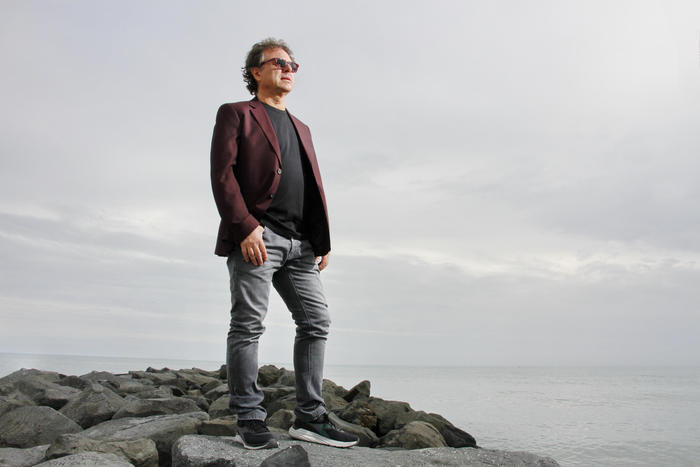The art of composing poetic songs that accompany our lives and cradle memories, of writing stainless hits like
'I love', 'I miss you' and 'I'll leave you'
, a hat-trick at
the Sanremo Festival
in the years '87, '88 it's '89.
Franco Fasano
, class of '61, talks about himself in the
book 'I love'
, edited by Massimiliano Beneggi (Ed. D'IDEE, 381 pages, € 18.90), a surprising journey through anecdotes and secrets of the last decades with dates, names and surnames of artists and professionals.
An author - is the thesis - puts himself at the service of great interpreters, remaining behind the scenes: the greatest expression of a presence in the silence of absence. Taking his first steps in his Alassio and after meeting with maestro Enrico Simonetti who told him he "had swing" and studying with maestro Pippo Barzizza, songs for the older ones were born,
from Mina to Mia Martini, from Fausto Loyal to Massimo Ranieri, from Anna Oxa to Franco Califano, Bruno Lauzi, Raffaella Carrà, Loretta Goggi, Iva Zanicchi, Al Bano, Cristina D'Avena
and others, without forgetting
'Give me a smile'
for
Drupi
or
'Guilty'
, piece with which
Nicola Arigliano
in Sanremo in 2005 he won the Mia Martini Critics Award, but also the great classics of the Zecchino d'Oro (won six times) such as
'Drop by drop' and 'The Katalicammello'
and cartoon
themes
such as
'Little heart problems'
and
'Rossana'
. The common thread is always love.
"I love is the first person of the verb to live", says Franco Fasano to ANSA. One of the first memories concerns Mimì. "If you write for children - Mia Martini told him - you are ready to write for me too". Another concerns Ignazio Boschetto and Gianluca Ginoble (before they became with Piero Barone the trio
Il Volo
), led by the hand to 'I leave you a song' where they were looking for children a little older than those of the Zecchino d'Oro. The history of the songs is fascinating. Sometimes a piece passes from hand to hand or remains for years in the drawer until the right artist arrives to give it a voice. This is the case of
'I want you without love'
, composed with Berlincioni in 1992, rejected by Mina, discarded in Sanremo with
Fiordaliso
, remained on the bench for a record by Massimo Ranieri, until the revelation, in 2009, on the stage of the Ariston sung by Iva Zanicchi (with the irreverent irony of Roberto Benigni, guest of the Festival).
With the preface by Franco Zanetti, director of Rockol, 'I love' is presented as a story that 'runs in 33 chapters', each linked to a QR Code that refers to a photo gallery. A volume that can also be consulted. "I like the idea of having remained 'the son of the photographer'", says Fasano who, as a child, appeared in Sanremo with a pass as a companion for his father. "I was enchanted by the Rich and the Poor who sang 'What will be' with Josè Feliciano. Now in the casino party room there are only slot machines", he observes.
He returned to the Festival as an adult several times as an author but also as an interpreter. In '89, singing on the piano, he left his mark with
'And that day you won't lose me anymore'
, while among the big names, in the same year, Anna Oxa and Fausto Leali triumphed with 'I'll leave you', always his. The myths of the song, which as a boy he admired in his father's photos, were becoming the interpreters of his songs. A story that continues, even if lately music seems to chase other fashions between rap, trap and autotune. "Sanremo - observes Fasano - was the Song Festival, then it became the festival of singers, TV, radio and now for visualizations". The triumph of the Maneskin bodes well, because 'Silent and good', "has a beautiful melody". Also 'Mille', the summer catchphrase of Fedez and Achille Lauro "is embellished by the melodic element driving with Orietta Berti". Ultimately "in music there must be no racism" and "it is the people who decree the real success of the songs ".
"I inherited this passion from my father - concludes Fasano - to whom I have dedicated not only this book, but most of my thoughts, especially since he died prematurely. He was able to capture certain moments with his camera, knowing how to immortalize forever an emotion. A bit like what happens to me with music ".

